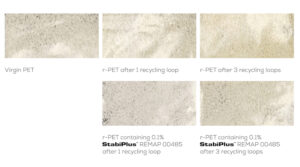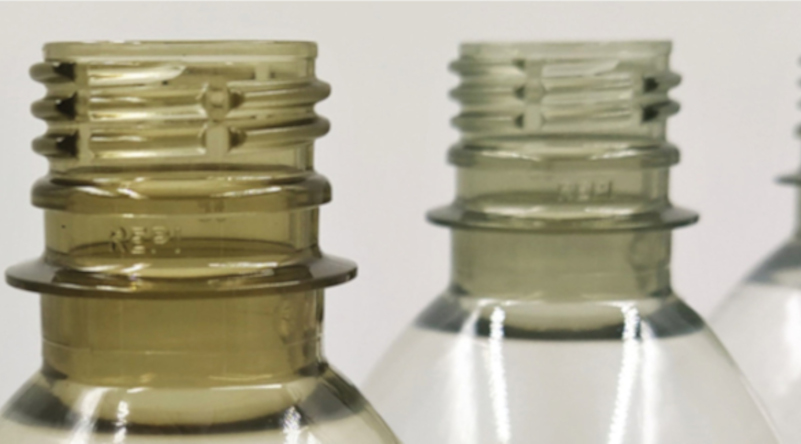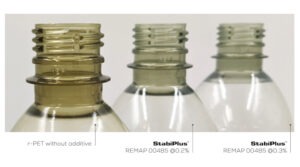Prevention of ageing and discolouration of rPET
Over the past two and a half years the packaging industry has had the opportunity to demonstrate its crucial role in offering safety and hygiene in health emergencies such as the one still ongoing. On the other hand, there is no doubt that the packaging world has been increasingly under intense pressure brought about by the tremendous push towards sustainability and recycling.
Repi, a manufacturer of liquid colours and additives for plastic packaging has been focusing for decades on advanced additive and colour solutions for PET and rPET. The ranges of the anti-yellow, optical brighteners and IV enhancers have been considered over the years a valid aid to rPET recyclers and packaging converters, offering an answer for anyone facing the challenge of including increasing rates of recycled material in their plastic packaging.
Such additives can be used at different stages of the rPET value chain, for example, from recycling up to preform or tray manufacturing with no impact on processes, thus offering high flexibility. The increasing demand for recycled percentages and the scarcity of food grade rPET flakes present challenges in respect of quality and colour consistency between one batch and another. A particular problem which both recyclers and converters struggle to manage is the drop of L* of CieLab numbers while respectively recycling and moulding or extruding the final packaging. Whilst it is in fact possible to correct off-shade rPET pellets with custom-made formulations that act both on the a* and on the b, the darkening of material (precisely the drop of L) is very difficult to avoid.

This is where StabiPlus additive comes in, the latest development by Repi: a liquid formulation acting specifically as proactive stabiliser that prevents rPET from ageing and discolouration, cycle after cycle. The additive can be used both at the recycling stage, added to a mechanical recycling process with SSP, and directly by converters at their packaging production stage, where the stabiliser can be added in quantities appropriate to the process. StabiPlus offers a new protection technology that does not affect Intrinsic Viscosity and therefore the mechanical properties of the recycled PET whilst at the same time widening the window for sustainable use of recycled PET.
StabiPlus is claimed to boost the use of different incoming material quality since it improves aesthetics cycle after cycle. StabiPlus Repi shows how the technology of chemical additives makes a crucial contribution to polymer recycling. It further emphasises the need for close cooperation in amongst the whole value chain of plastic packaging to share the challenges, so that all parties move towards the well-defined key objectives of “reduce” (weight without losing performance), “reuse” (packaging whenever sustainable), “recycle” (thanks to the most advanced technologies developed so far).
Text based on an article by Lucia Buffoni, Repi Group Marketing Manager
Photo above: rPET brightness and shade improve cycle after cycle. Each of the three cycles has been designed to put maximum stress on the material in order to show the additive’s performance: one lab cycle delivering double the stress of an industrial process. StabiPlus has been added to the first recycling loop only.


